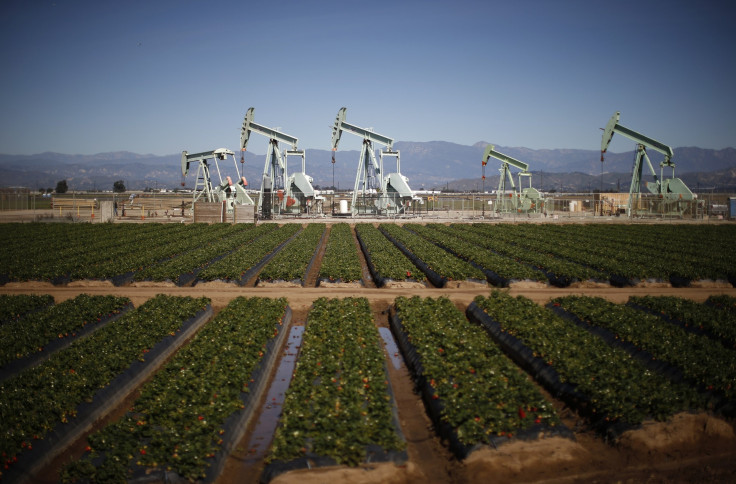Oil Prices: US Crude Drops Below $29 For A Third Time This Year As White House Proposes A $10.25 Per Barrel Fee

Oil prices plunged 8 percent on Tuesday amid a seesaw trading day in U.S. markets, but they clawed back some of their losses. Investors reacted to a widely watched monthly global oil report that said demand won’t have a significant impact on the oversupply this year.
A weekly inventory report released from the American Petroleum Institute (API) a day before Wednesday’s official U.S. stockpile data is expected to show an increase of around 3.9 million barrels for the week ended Feb. 5, according to a Reuters forecast.
U.S. West Texas Intermediate (WTI) for March delivery settled down 4.5 percent to $28.30 on Tuesday. It’s the third time since the start of the year that a barrel of light sweet crude has closed below $29. The price hit its lowest level since May 2003 on Jan. 20, at $26.55.
On Wednesday, the U.S. Energy Information Administration will release its weekly stockpile report, which will likely support the API’s inventory estimate, offering more downward pressure on prices.
The International Energy Agency said in its latest monthly global oil market report that oil stocks would grow by 2 million barrels per day in the first three months of the year, while demand would fall to 1.2 million barrels a day.
Meanwhile, the energy sector is fuming over U.S. President Barack Obama’s proposal to charge oil companies a $10.25 per-barrel tax to help fund upgrades to transportation infrastructure, including integrating new technologies for self-driving vehicles and to help reduce America’s dependence on oil.
The proposal is part of the White House’s 2017 budget plan that was made public Tuesday. The White House says the fee would raise $319 billion over the next decade for green subsidies.
“The plan would be funded by a new $10.25 per barrel fee on oil paid by oil companies, which would be phased in over five years,” the White House 2017 budget proposal said. “By placing a fee on oil, the president’s plan creates a clear incentive for private-sector innovation to reduce America’s reliance on oil and invest in clean energy technologies that will power our future.”
The API dismissed the proposal, which is likely to face steep opposition in Congress, calling it an attack on consumers.
“The $10 per-barrel tax hike — which would add about 30 percent to the cost of a barrel of oil and potentially about 25 cents to the cost of a gallon of gasoline, according to reports — should be a wake-up call,” API President and CEO Jack Gerard said in a statement Tuesday reacting to the White House proposal.
© Copyright IBTimes 2025. All rights reserved.






















